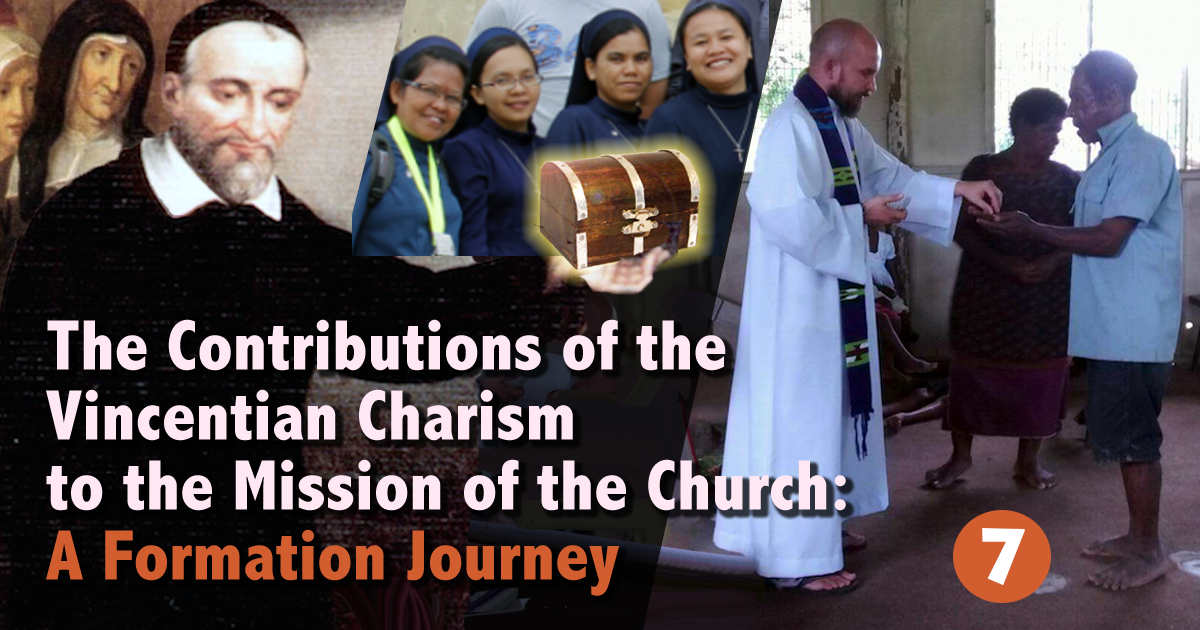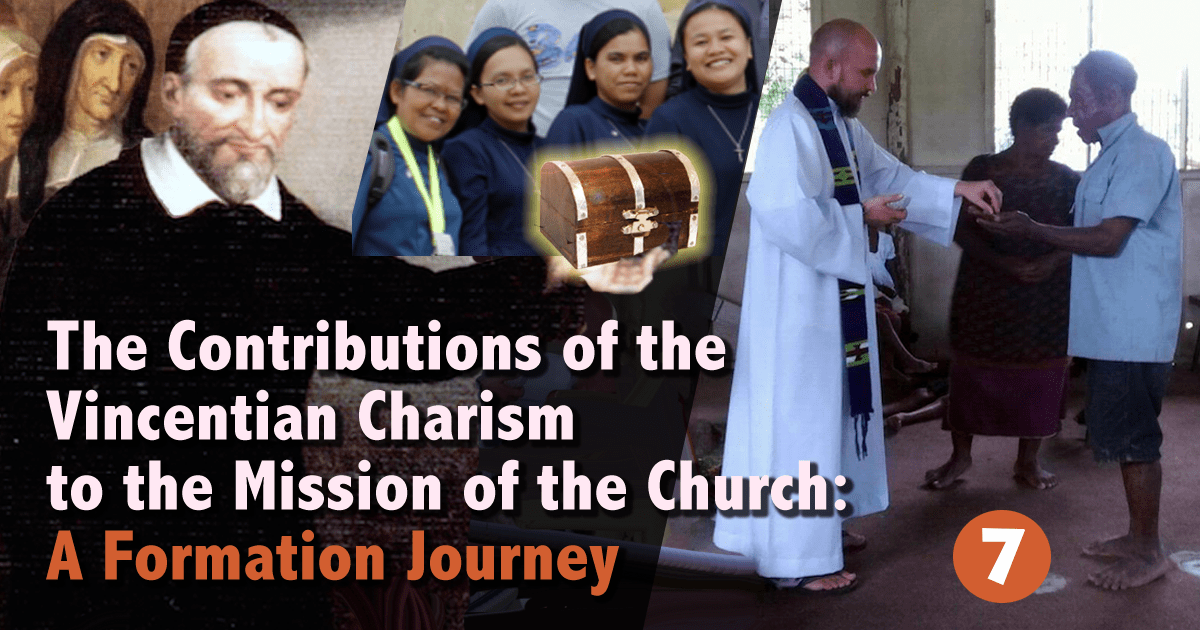The School of the Poor • “Contributions” #7
This is the seventh of a series of formation packages meant for individual or group study which was introduced in “The Contributions of the Vincentian Charism to the Mission of the Church: A Formation Journey.” In that article, we also suggested a “Lesson Plan” for use in groups.

About 45 years ago a priest working in an extremely poor area of New York City said that he realized that he was not bringing Christ to the people he served. Rather he was actually discovering Christ in them.
As I read and reread Fr. Delgado’s article I am realizing at a deeper level than I did many years ago just how Vincentian that insight was.
“The poor evangelize us.” They are not merely recipients of evangelization. They are also actively evangelizing.
Many of us have grown up in cultures that think of ourselves as being evangelizers and missionaries rather than being evangelized. We rarely think of what we receive from those who are poor.
Fr. Delgado reminds us that the poor evangelize us is one of the most significant teachings that Vincent learned from being at the side of the poor.
My mother proudly used to say, “I graduated from the school of hard knocks.” I never made the connection to Vincent until recently.
Vincent spent much time with the circle of individuals who were members of what was called the French School of Spirituality. But he was not comfortable there. Vincent was as student of a more demanding school, the school of the poor.
It does seem that this phrase, “evangelized by the poor,” was never uttered as such by Vincent. Nevertheless, he affirmed that the poor are our teachers and that true religion is lived and practiced especially by the poor, the humble and the peasants. They are teachers of the faith because they have cultivated a series of fundamental Christian virtues and attitudes.
“What I retain from my experience of this is the discernment I have always made that true religion — true religion, Messieurs, true religion — is found among the poor. God enriches them with a lively faith; they believe, they touch, they taste the words of life. (CCD:XII:142).
Therefore, as Vincentians we should learn from them and live and practice our faith in the same way that they do.
But there is another dimension of being evangelized by the poor.
For Vincent, Jesus was in the person of the poor and there Vincent discovered Jesus and awaited the definitive encounter when he would be embraced by the One who had given him his mission.
“Poor men and women enable us to encounter God, enable us to hear God and God speaks to us and exhorts us and warns us. As we encounter the poor in the very midst of systems of marginalization, our eyes are opened and we come to a clearer understanding of the meaning of God, Christ, the Church and the demands of scripture. The poor give us God and in the person of the poor we serve God.” (Barquín, “El pobre, lugar teológico en el carisma vicenciano” in Carisma, vicenciano, memoría y profecía, Editorial CEME, Salamanca, 2001, p. 127-204. English translation here.)
The apostle Paul reveals with great clarity that the poor provide us with a perspective to encounter God and to discover God’s will. Writing to the Christian community at Corinth, “Consider your own calling, brothers. Not many of you were wise by human standards, not many were powerful, nor many were of noble birth. Rather, God chose the foolish of the world to shame the wise, and God chose the weak of the world to shame the strong, and God chose the lowly and despised of the world, those who count for nothing, to reduce to nothing those who are something.” (1 Corinthians 1:26-28).
Is it any surprise that in Vincent’s time the majority of the Daughters of Charity came from among the poor in order to serve God in the person of the poor. These young women became exemplary ministers as evangelizers of the poor.
The new evangelization is an invitation to acknowledge the saving power at work in their lives and to put them at the centre of the Church’s pilgrim way. We are called to find Christ in them, to lend our voice to their causes, but also to be their friends, to listen to them, to speak for them and to embrace the mysterious wisdom which God wishes to share with us through them (Evangelii Gaudium, #198).
-
- Do I recognize those who are poor as evangelizers?
- What have I learned in the school of the poor?
See you next week!
| View any or all of the Articles and SlideShares including today’s | |
| Download any or all of the SlideShares as PDF • PPTX |
We hope you’ve enjoyed this collaboration of…







0 Comments